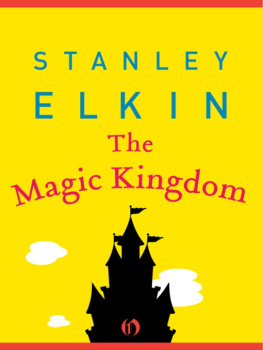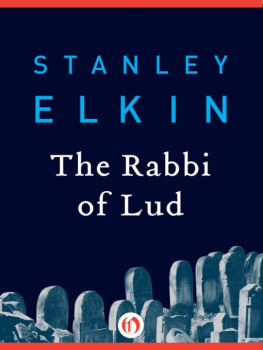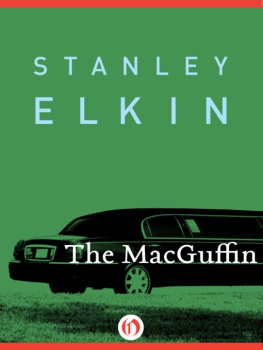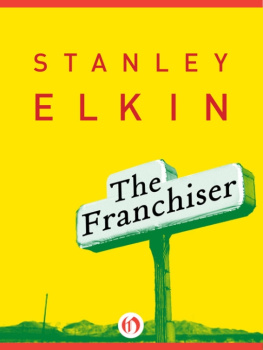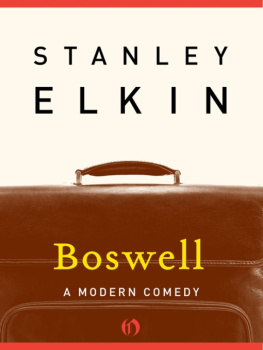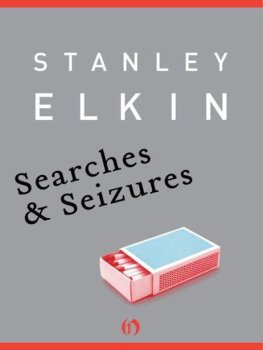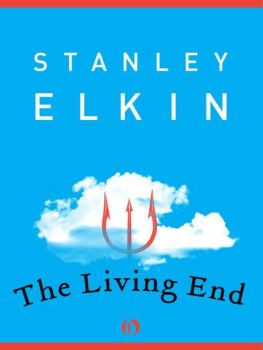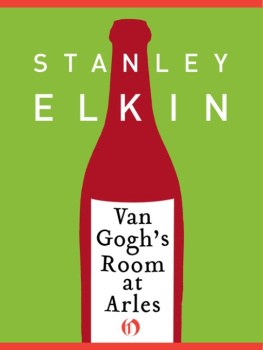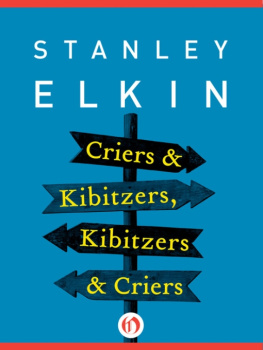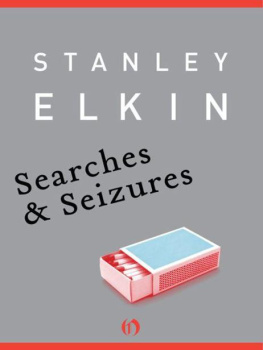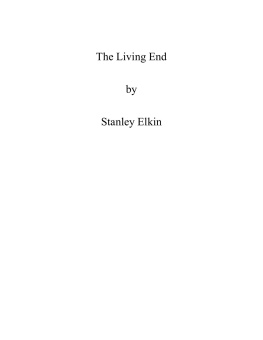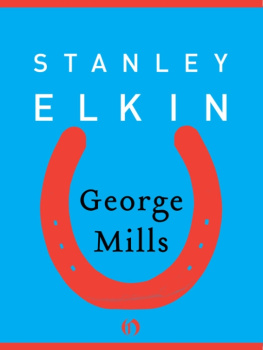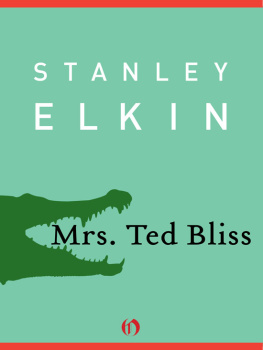Stanley Elkin - The Magic Kingdom
Here you can read online Stanley Elkin - The Magic Kingdom full text of the book (entire story) in english for free. Download pdf and epub, get meaning, cover and reviews about this ebook. year: 2010, publisher: Open Road Publishing, genre: Detective and thriller. Description of the work, (preface) as well as reviews are available. Best literature library LitArk.com created for fans of good reading and offers a wide selection of genres:
Romance novel
Science fiction
Adventure
Detective
Science
History
Home and family
Prose
Art
Politics
Computer
Non-fiction
Religion
Business
Children
Humor
Choose a favorite category and find really read worthwhile books. Enjoy immersion in the world of imagination, feel the emotions of the characters or learn something new for yourself, make an fascinating discovery.
- Book:The Magic Kingdom
- Author:
- Publisher:Open Road Publishing
- Genre:
- Year:2010
- Rating:3 / 5
- Favourites:Add to favourites
- Your mark:
- 60
- 1
- 2
- 3
- 4
- 5
The Magic Kingdom: summary, description and annotation
We offer to read an annotation, description, summary or preface (depends on what the author of the book "The Magic Kingdom" wrote himself). If you haven't found the necessary information about the book — write in the comments, we will try to find it.
The Magic Kingdom — read online for free the complete book (whole text) full work
Below is the text of the book, divided by pages. System saving the place of the last page read, allows you to conveniently read the book "The Magic Kingdom" online for free, without having to search again every time where you left off. Put a bookmark, and you can go to the page where you finished reading at any time.
Font size:
Interval:
Bookmark:
The Magic Kingdom
Stanley Elkin

For Joan
CONTENTS
E ddy Bale took his idea to the Empire Childrens Fund, to Childrens Relief, to the Youth Emergency Committee. He went to CARE and Oxfam and the Sunshine Foundation and, because he was famous by then, a famous griever, managed entres to the boardrooms of Rothschilds and British Petroleum, ICI and Anglo-Dutch, Marks & Spencer and Barclays, to Trusthouse Forte, to Guinness, to British Rail. He wrote to hospices; he wrote physicians on Harley Street and called at surgeries and hospitals. He spoke to high-ups in the National Health and dashed off letters to the national newspapers. He had an interview with Lord Lew Grade and worked up a proposal for Granada and the BBC. Because the idea was dramatic he approached the Directors of the National Theatre and the Royal Shakespeare Company. He had a sign made which could be put in taxis and minicabs.
What convinced him his idea made sense, he said, was the fact that none of these children was under the care of a pediatrician. Not one. (Charles Mudd-Gaddis, eight, was being seen by a gerontologist.) Theyd been handed over to the specialists. Specialists diagnosed them and other specialists treated them, if you could call their courses of experimental drugs and dollops of nuclear medicine and being zapped by lasers treatment. They were tortured not into health, he said, but into, at best, brief periods of remission. They died in pain, language torn from their throats or, what little language they had left, turned into an almost gangster argot, uncivilized, barbaric as the skirls and screaks of bayed prey.
He spoke, he reminded them, from experience, and here his auditors looked away or cast down their eyes, for by this time there could hardly have been an adult in all the kingdom who hadnt heard of the ordeal of Eddy Bales son: eleven operations in three years, the desperate flights to Johannesburg and Beijing; even, though the Bales werent Catholic, to Lourdes; and even, though they werent suckers by nature, to the gypsiesto anyone, finally, who promised to lift the curse. There had been a woman in Leek Street who read the toilet paper on which Liam wiped himself, and a witch in Lands End who fed him the eyes of rabid dogs and the testicles of great sea birds wrapped in toads skin like a bleak hors doeuvre. Bale and Ginny together had all they could do just to hold him down long enough to get it past his jaws. When the stuff backed up he started to retch from his nose and the witch pinched his nostrils. No, she said when Ginny protested she was smothering him, its supposed to mix with his puke. Thats what seasons it.
You know what practically his last words were? Eddy Bale asked the great men with whom hed had interviews. May I die now? May I die now, please?
Please, Mister Bale, a Lord counseled softly, you oughtnt.
But Bale was crazy.
Canisters! he pleaded. Just let me leave canisters with your publicans and newsagents. Let me put canisters in your tobacconists and greengrocers.
There were dozens of angles. Eddy wrote quiet businesslike letters to top rock stars suggesting they do a ballad about these children. He wrote Elton John and the musician replied, sending along with his letter a haunting and very beautiful song hed written which he said Bale could have so long as the composers name was never linked with it. Bale showed the song to the managers of half a dozen of Great Britains most important artists with no success. All recognized the songs genius but refused to allow the people they represented to have anything to do with it. Eddy even got apologetic phone calls from two of the Beatles and a long overseas call from Yoko Ono. Once, near a recording studio in Hammersmith, he actually heard someone whistling the mournful, catchy melody in the street, but when he stopped the man to ask what the piece was and where hed heard it, the fellow, a particularly vicious punk rocker Bale recognized from his photographs, became embarrassed and rushed off as if actually frightened.
It was a question of taste. No one would say so; no one wanted to hurt a man whod been through so much, whod put the nation through so much. Two or three of the countrys biggest executives actually agreed that it was a wonderful idea for a promotion, worth probably hundreds of thousands to their firms, but when pressed declined to explain their reluctance to participate in his campaign. (Because even Ginny had abandoned him by now, having left just after burying Liam.)
Though no one had to tell him. Eddy Bale may have been mad but he was no fool. During the four years of his childs illness he had submitted toand survivedmany exquisite attacks of pained, assaulted taste and wronged form. Hed lived with camera crews, gone on the wireless, wept for photographers from the mass circulation dailies till he could have wept, participated in a hundred stunts and publicity tricks, become the U.K.s most visible, most recognizable beggar. Hed gone door-to-door, his hat quite literally in his hand, to raise the close to one hundred thousand pounds that kept Liam alive. He sold exclusives to the press, each more humiliating than the last, drawing them forth from a reserve, a storehouse, a treasury of indignities, intimate detailgiving Liams public honest measure, unstinting, honorable as a craftsman, an artisan of the unspeakable: BALES DISCLOSE DETAILS OF DYING LIAMS GROWING SEX DRIVE!; HOW THEY BROKE THE NEWS: PARENTS TELL TWELVE- YEAR-OLD ALL HOPE DEAD! (It was all they would accept, finally, passing over his and his wifes suffering and the considerable heroics of the childs determined resistance, ignoring Liams struggle, whatever value he might still have as an inspiration to others, defying human interest itself at lastonce it was established he couldnt livehoming in on the macabre, the exotic, all the screwy, built-in ironies of premature death.) And he was humiliated. (And Liam, a terminal fame victim, as interested as the readership itself in the vicious aspects of his own story, taking a sort of cold comfort from its documentation, in a way grateful that others could be drawn in, driven to clich, weeping as his father read these accounts to him of his own last monthsfor he was too weak to hold a newspaper nowsobbing condolenceIve suffered so much, my death will be a blessingand offering his comments almost as if hed survived himself.) And said to Ginny what Ginny could at any time have said to him (for they were in this together, collaborative as kidnappers, hijackers, ideological as terrorists), their hearts mutual weights and measures, lashed by the same hope, doomsdayd by identical misgivings: Were mugs, mdear. Ants at the picnic. They hate us. They despise Liam. They wish wed go way and eat our grief like men. Your father lost a father,/ That father lost, lost his, et cetera et cetera.
And if they were on Claudiuss side in this, why, so was he. So was Ginny. So, for his part, was Liam himself. Much as he was eager for others to know what hed gone through, the child had despised his routines for television, for the press. Its mush, Daddy. Its all cagmag and codswallop. And you know the part I hate most? The medical stuff. Pictures of my bone grafts, my deformed platelets, those awful blowups of my bombed-out retinas.
So because he could get nowhere with the countrys great public firms and private men, nowhere with the public itself (despite Eddys protestations that the money in this instance was trivial compared to what it had given him last time, twenty thousand pounds as opposed to a hundred thousand), he determined to take his case over their heads. He decided to seek an audience with the Queen.
On the strength of a condolence letterMy husband and I were distressed to read in the
Next pageFont size:
Interval:
Bookmark:
Similar books «The Magic Kingdom»
Look at similar books to The Magic Kingdom. We have selected literature similar in name and meaning in the hope of providing readers with more options to find new, interesting, not yet read works.
Discussion, reviews of the book The Magic Kingdom and just readers' own opinions. Leave your comments, write what you think about the work, its meaning or the main characters. Specify what exactly you liked and what you didn't like, and why you think so.

